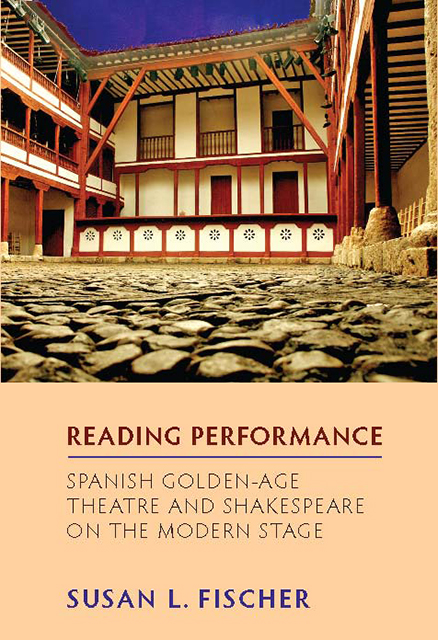4 - Calderón and the ideology of egalitarianism “más bien dado” El alcalde de Zalamea (The Mayor of Zalamea)
Published online by Cambridge University Press: 28 February 2023
Summary
The phrase, “classical theatre as it ought to be performed,” at first sight smacks of all that Peter Brook's notion of “Deadly Theatre” suggests: theatre that “approaches the classics from the viewpoint that somewhere, someone has found out and defined how the play should be done” (Empty 14). On the one hand, such deadliness implies repetition – “old formulae, old methods, old jokes, old effects” (36); and on the other, it connotes theatre that is “done by good actors in what seems like the proper way – they look lively and colourful, there is music and everyone is all dressed up, just as they are supposed to be in the best of classical theatres” (10). The painful result is theatre that is at once “excruciatingly boring” (10) and “depressingly active” (37). From another perspective, however, to speak of “classical theatre as it ought to be performed” is to recognize wherein lies the power of such plays. Brook's observations with regard to Shakespeare are equally applicable to early modern Spanish theatre:
The absence of scenery in the Elizabethan theatre was one of its greatest freedoms. In England at least, all productions for quite some time have been influenced by the discovery that Shakespeare's plays were written to be performed continuously, that their cinematic structure of alternating short scenes, plot intercut with subplot, were all part of a total shape. (78)
Brook adds that “the freedom of movement of the Elizabethan theatre was not only a matter of scenery”:
The primary fact is that this theatre not only allowed the playwright to roam the world, it also allowed him free passage from the world of action to the world of inner impressions. […] A primitive situation disturbs us in our subconscious; our intelligence watches, comments, philosophizes. […] We identify emotionally, subjectively – and yet at one and the same time we evaluate politically, objectively in relation to society. Because the profound reaches past the everyday, a heightened language and a ritualistic use of rhythm brings us to those very aspects of life which the surface hides. (79)
These two factors – “the absence of scenery” on stage (78) and the ability of a play to “pass through many stages of consciousness” (80) – not only characterize Shakespeare's theatre but also help to account for the success of José Luis Alonso's production in 1988 of Calderón's El alcalde de Zalamea with the Compañía Nacional de Teatro Clásico.
- Type
- Chapter
- Information
- Publisher: Boydell & BrewerPrint publication year: 2009

